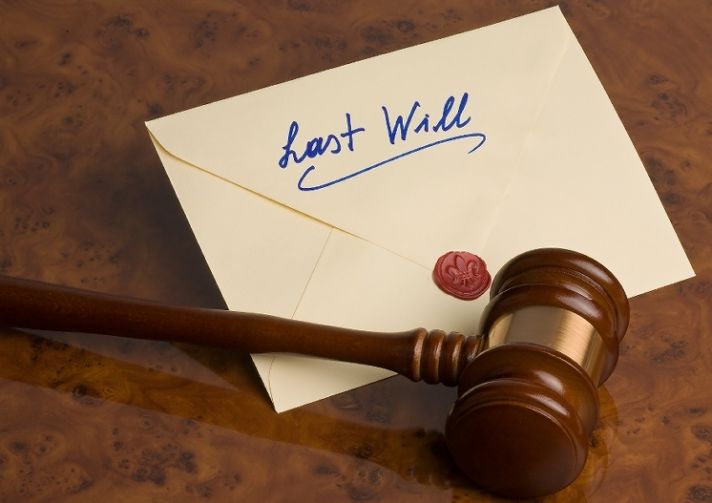Requirements for drafting a valid will in South Africa

13 Dec 2016
Why do I need a will?
When you kick the bucket, chances are that your estate won’t matter much to you, but do you want your life’s work to be distributed amongst unworthy heirs? Everything that remains of your assets after all debts and administrative costs have been subtracted, will be inherited through the laws of succession by your qualified beneficiaries. If you fail to draft a valid will, the assets in your deceased estate will be distributed in accordance with the Intestate Succession Act 81 of 1987. This could result in your least favourite child or an estranged spouse receiving a portion of your assets which you may have preferred to donate to the SPCA.
So if you want to ensure that your preferred people (or animals) benefit from the delicious fruits of your creation when you finally pass on, make sure to draft a valid Last Will and Testament.
Freedom of Testation
The formalities of drafting a will are rather strict in order to avoid fraud and impersonations. The principal of freedom of testation however is rather liberal. It grants a testator extensive power to draft a will and testament which directs how the estate’s assets must be distributed upon death.
There are several common law limitations to the freedom of testation. For example, a provision of a will cannot be exercised where it is unlawful, against good morals, too vague or impossible to perform. Additionally, the minor children of the deceased have a common law claim to maintenance. Specific legislation may also limit one’s freedom of testation, for example, in cases where pension funds, trust property or spousal maintenance are concerned.
Requirements for drafting a valid will?
The requirements for drafting a valid will are contained in section 2(1)(a) of the Wills Act 7 of 1953. They are relatively straight forward, but even a seemingly meaningless oversight may invalidate the entire document. The court is given a power to condone a will that does not comply with all the formalities in order to try and avoid situations which may invalidate a will and frustrate the testator’s good intentions. Nevertheless, it is always advisable to abide by all the requirements in order to avoid any complications and delays. Here are some of the basic requirements for drafting a valid will:
- The testator must be older than 16 years of age.
- The testator must be mentally capable of understanding the consequences of his or her actions at the time that the will was drafted. Wills or provisions that are proven to be drafted under duress, undue influence or mistake will be invalid. Convincing your father-in-law to add you to his will after 9 whiskeys is generally frowned upon, and the relevant provisions may be challenged in court. The onus of proof to show mental incapacity or lack of intention of the testator rests on the person making such allegation.
- The will must be in writing. It can be handwritten or printed – just makes sure it’s clear. And don’t forget to put your name on it.
- The testator must sign at the end of the will. While the act is not clear in this regard, it is recommended that the signature be placed just below or as near as possible to the last line of the will. A significant gap between the last line of the will and a testator’s signature maybe cause a will be declared invalid. Furthermore, the following methods of signature are sometimes necessary when the testator is paralyzed or is too feeble to sign:
- A testator may request a person to sign on his or her behalf. In such event, the signature must be made in the presence of the testator, at least two competent witnesses, and a commissioner of oaths. The commissioner of oaths must certify the will and sign each of its pages.
- A testator may sign a will by making a mark or a thumbprint in the presence of at least two competent witnesses and a commissioner of oaths. The commissioner of oaths must certify the will and sign each of its pages. Witnesses may not sign by making a mark or thumbprint.
- If the will is longer than one page, the testator (or someone on his behalf) must also sign every other page of the will, anywhere on the page.
- The testator’s signature on the last page must be made or acknowledged in the presence of 2 competent witnesses who are present at the same time. According to section 1 of the Wills Act, a competent witness is anyone over the age of 14 who is of sound mind and capable of understanding the consequences of his or her actions and can testify in court.
- The witnesses must sign the last page of the will. The signatures can be made anywhere on the last page, but it is recommended that they are made below or as near as possible to the last line of the will. The witnesses’ role is to witness the signature of the testator or the person signing on the testator’s behalf. It is therefore not necessary for the witnesses to read the will. For additional evidential value, it is recommended that the witnesses add an attestation clause along the following lines: “We, X and Y, hereby confirm the signature of testator Z and declare that we have signed the will of Z on DATE in the presence of one another and of Z.
- Although it is not a legal requirement, it is recommended that the witnesses also sign every other page of the will.
- A beneficiary or executor should not sign a will as a witness. If they do, they may be disqualified from inheriting under the will. The validity of the will however will not be affected.
- While it is not a formal requirement for validity, it is highly recommended to date your last will and testament to avoid any confusion in case more than one will is found.
Amending your Will
The freedom of testation implies that a testator may revoke or alter his or her will at any time before their death, so if you’re expecting an inheritance, make sure to play nice until the end. And remember, no one has a fundamental right to inherit.
Amendments to a will are regulated by section 2(1)(b) of the Will Act. Amendments include any deletion, addition, alteration or interlineation. An amendment made via a codicil, which is a schedule or annexure to an existing will, must follow the same rules as those for drafting a valid will. The witnesses to a codicil do not have to be the same as the witnesses of the will.
Amendments made on the will itself must be identified by the signature of the testator or such person signing on his behalf. The signature must be made as close as possible to the amendment in the presence of two witnesses who are present at the same time. The witnesses must also sign as close as possible to the amendment. If the amendment is signed via a mark, thumbprint or a delegated person, then the commissioner of oaths must also satisfy himself as to the intentions and identity of the testator, and must certify the amendment.
Should a testator wish to delete his or entire will, this will amount to a revocation, and the requirements of section 2(1)(b) of the Wills Act will not apply. A will may be revoked by the execution of a new will which expressly revokes the former, or through the destruction of a will with the accompanying intention of revoking it.
Should you amend your will after a divorce?
If you don’t want your ex to inherit, then definitely. The Wills Act gives the newly divorced testators a three month grace period in which they assume that the divorced parties no longer like each other. Accordingly, if the testator dies within 3 months of the date of the divorce, the will is interpreted as if the surviving party has died before the deceased, and the estate will be distributed accordingly. If however a divorced testator fails to amend their will or draft a new one within three months from the date of divorce, it will be assumed that the testator wishes his or her ex-spouse to benefit as per the will.
And finally, seek professional legal advice
The information contained in this article is aimed at informing and guiding the reader, but may not be suitably geared for a person’s unique circumstances. There are numerous technicalities which have not been discussed in this article and may be important when considering the administration of one’s estate and the requirements for drafting a valid will.


No comments:
Post a Comment